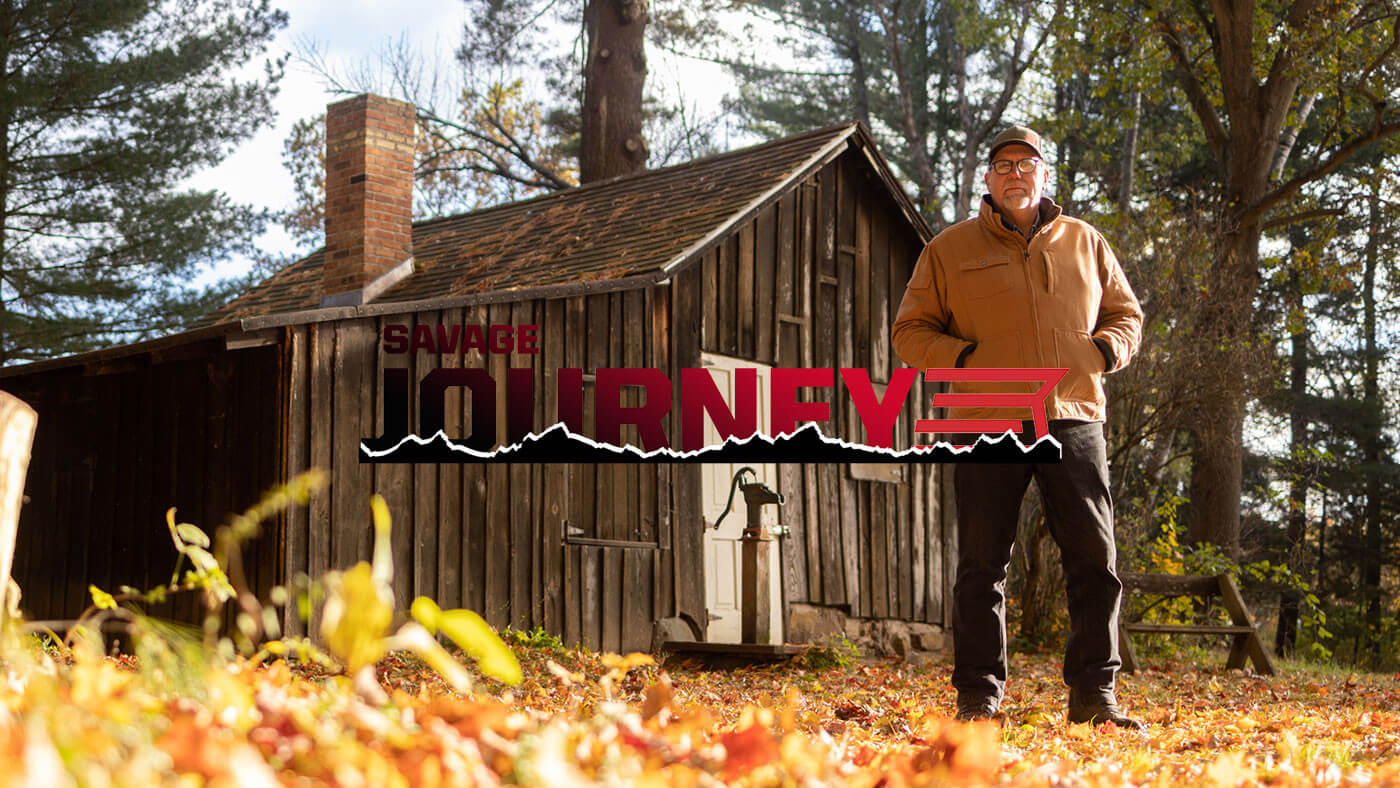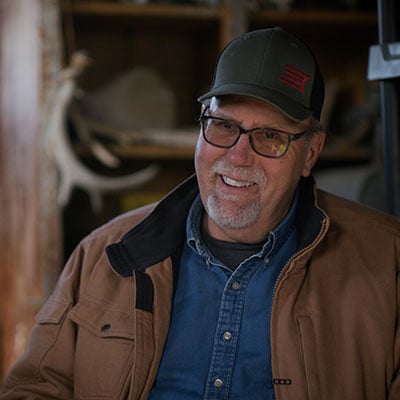- Savage Blog
- The Duren Family Farm | Savage Journeys
The Duren Family Farm | Savage Journeys

Located in near Cazenovia in southwest Wisconsin’s Driftless Area, the Duren Family Farm looks like the scene featured on the state’s license plate: a red 100-year-old dairy barn, white farmhouse and milkhouse, a concrete silo and a couple galvanized metal outbuildings from the 1950’s. These buildings, all now obsolete, have good roofs so they’ll stand for decades, a testament to the heyday of the small family dairy farm that helped Wisconsin earn the nickname “America’s Dairyland.”

The 400 acres that our family farm is carved out of has been in the Duren family for 120 years. My siblings and I are the 4th generation to own the property. Originally purchased by my great-grandfather to supply timber for his sawmill, 240 acres of woodland still makes up the largest part of the farm. The remaining acres include 100 acres of cropland and 60 acres of pasture. My grandparents eventually purchased the farm, as they also owned a sawmill, and the woods were well-managed with harvests planned and completed to feed the mill, but also to leave plenty of trees growing for the future.
The Evolution of a Conservation Minded Person
My parents, Vincent and Jane Duren were part of the “greatest generation,” and moved to Cazenovia in the mid-1950s, started a family and purchased the farm from my grandparents. Growing up in this area in the 1960s and 70s, my generation grew up in the last best years of the small family dairy farms. The little villages were bustling with commerce built around agriculture, kids learned the work of farming and there was a place just down the road where your friends were living a similar life. School buses were full, and the community was built around the schools and other community activities. Every boy I knew, after the farm work was done, was interested in sports, being in the woods, and fishing and hunting.

Our fathers taught the hunter safety classes we attended, and those men hunted together. We learned that hunting, fishing, and enjoying the outdoors were experiences best shared with friends and family. The opening of small game season was an event! Deer were scarce in our area at that time, so Dad and his friends would go “Up North” to gun deer hunt. One of the first lessons of hunting I learned from my father was about “hunting with and for the other guy.” I loved to hear the stories of how they lived in old army tents, set up and executed deer drives, how they congratulated each other for a well-placed shot, and how they “ribbed” each other about shots missed. They processed the deer together and shared the meat.

My friends and I emulated that example of shared experience as we explored the outdoors, fishing, and hunting in our formative years.
In High School, I read Aldo Leopold’s “A Sand County Almanac.” The first part of the book, a phenology calendar of the natural world, fascinated me as a teenager. Leopold wrote about observations and the changes month to month on his farm just 30 miles from where I was in Cazenovia, and his words eloquently mirrored and explained the seasons we were experiencing. Leopold, that little book, and his other essays have continued to speak to me throughout my life.

Read: Who was Aldo Leopold?
A connection with the outdoors and conservation has since been a part of my work and life. In addition to the work on our farm, I’ve worked as a tree planter across the southern US, on trail crews in the White Mountains of New England, established a landscape company in Door County, Wisconsin based on naturalization and restoration, managed a commercial landscape company, and worked as a project manager for a civil engineering firm in the Madison area. In 2008 I founded Lone Oak Interests, LLC, a site and land management consulting and contracting company. Since the late 1990s I have also been this generation’s steward of the family farm.
One day while working in the woods alone, I felt the presence of members of my family generations, past, present, and future. In that moment I realized my conservation motto came to me: “It’s Not Ours It’s Just Our Turn” and that expression is the base of my conservation ethos.

The Duren Farm Today and Into the Future
Our Adaptive Farm Management Plan has and continues to evolve, and it is conservation based. We removed our highly erodible cropland from production and entered it in the Conservation Reserve Program (CRP). Our woodland is in the Managed Forest Law (MFL) program. We have completed Environmental Quality Incentive Program (EQIP) plans including spring and stream protection, timber stand improvement, invasive species control and other projects. We have established and maintained pollinator habitats. We still raise beef, opting for a small herd of pasture raised grass-fed cattle.

Leopold, Riley, and Sharing the Land
In 2008 I stopped in the village of Riley, a remnant of a small Wisconsin farming town, where I learned more about Leopold and a fascinating project: The Riley Game Cooperative. At Riley, Leopold and some folks from town became friends with a group of local farmers. They worked together to improve marginal land for all wildlife, especially game species. Cooperatively they shared the work, the hunting and recreation benefits of their efforts. These efforts were built around community, cooperation, and conservation. This inspired me to see if a modern version of this idea might work on our farm. Our intent was to share in the ideals learned from previous generations and those inspired by the Riley Game Cooperative.

Experimenting with inviting people beyond our family and friends to the farm, I invited new folks and described the idea: Spend a day working on the farm, helping me with a project and in return you’d have access for turkey hunting for 3 days. 4 groups of 2 people were invited, all strangers. We worked together on projects, got to know each other a bit, went hunting together one morning and then they went out on their own. We all enjoyed the experience and I remain friends with all these folks, and some are still part of our group.
Now, over the course of each year we welcome 40 people to the farm. We share in learning about and working on conservation, hunting, foraging and community. The sense of shared experience, camaraderie and community are some of the biggest gifts. And fun. We have a lot of fun.

Aldo Leopold once said, “There are two things that interest me: the relation of people to each other, and the relation of people to land.” The Duren Family Farm experiment continues. In 2020 we created Sharing the Land, a conservation cooperators network, which builds on the lessons of Riley and connects landowners and access seekers through cooperation, conservation, and community. Landowners in 8 states have joined Sharing the Land and 30 properties are part of the network. 300 access seekers have submitted Conservation Resumes which we use to match them with landowners.
Learn more about Sharing the Land and follow on Instagram at @sharingtheland.
Learn more about Doug Duren and follow on Instagram @dougduren.


